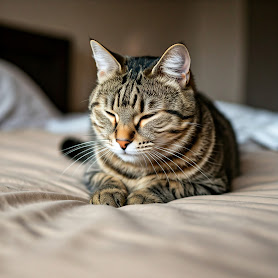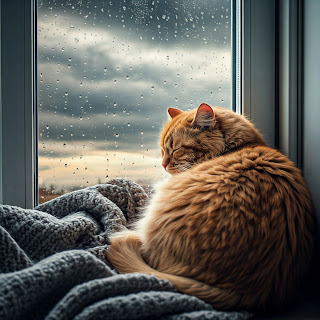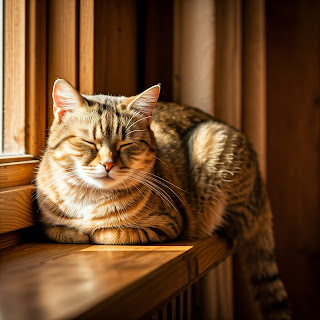Why Do Cats Sleep So Much? The Purr-fect Guide to Feline Snoozing Habits
Have you ever caught your cat in yet another snooze fest and wondered, "Why does my cat sleep so much?" Cats are champion nappers, clocking in anywhere between 12 to 16 hours of sleep a day—sometimes even more! But before you start envying their luxurious lifestyle, let’s dive into the reasons behind their extensive beauty rest.
Born to Nap: The Instinctual Need for Sleep
Cats are natural predators, and even your adorable housecat shares DNA with wild hunters like lions and tigers. Hunting requires bursts of intense energy, so sleep is essential for recharging. Even though your furry friend hunts only toy mice and laser dots, that evolutionary instinct remains.
In the wild, predators like cats must conserve energy for chasing prey. This trait, inherited by domestic cats, explains why your kitty seems to save their energy for their wild zoomies at 3 a.m.
Cat Sleep Cycles: More Than Just Naps
Felines don’t experience sleep the same way we do. Their sleep consists of:
- Light Sleep (Catnap Mode): This makes up most of their snooze time. Cats stay semi-alert, with ears twitching at the slightest noise.
- Deep Sleep (Dreamland): Cats slip into deep REM sleep for about 25% of their rest, where they might twitch, stretch, or even "chase prey" in their dreams.
Age Matters: Sleep Needs Through a Cat's Life
A cat’s age heavily influences how much they sleep:
- Kittens: Growing kitties can sleep up to 20 hours a day to fuel their rapid development.
- Adults: Healthy adult cats average 12–16 hours daily.
- Senior Cats: Older cats may sleep more as their energy levels decrease.
Weather Watch: Cats Love Cozy Snoozes
Ever notice your cat sleeps more on rainy or cold days? Cats, like humans, enjoy curling up in a warm spot when the weather turns gloomy. A patch of sunlight or a soft blanket becomes their personal paradise.
Health Check: When Is Too Much Sleep a Concern?
While long naps are normal, excessive sleep could indicate underlying health issues like:
- Obesity: Lack of activity can lead to weight gain.
- Illness: Cats may sleep more if they’re unwell or in pain.
- Boredom: A lack of stimulation can result in lazy behavior.
If you notice changes in your cat’s sleeping habits—like sudden lethargy or a complete lack of interest in food or play—schedule a vet visit.
How to Keep Your Cat Active Between Naps
While your cat needs their snooze, keeping them active ensures they stay healthy. Try these tips:
- Interactive Toys: Laser pointers and feather wands are great for engaging their hunting instincts.
- Puzzle Feeders: Keep their minds sharp while they work for treats.
- Vertical Space: Cats love climbing, so a cat tree or shelves can add excitement to their day.
The Purr-fect Takeaway
Cats sleep so much because they’re conserving energy, following evolutionary instincts, and adjusting to their environment. Whether they’re stretched out in a sunbeam or curled into a ball on your favorite chair, your cat’s snoozing habits are a natural (and adorable) part of being feline.
So next time you see your kitty deep in dreamland, remember—they’re just living their best, most restful life. After all, isn’t the world a better place when it’s viewed through well-rested cat eyes?












